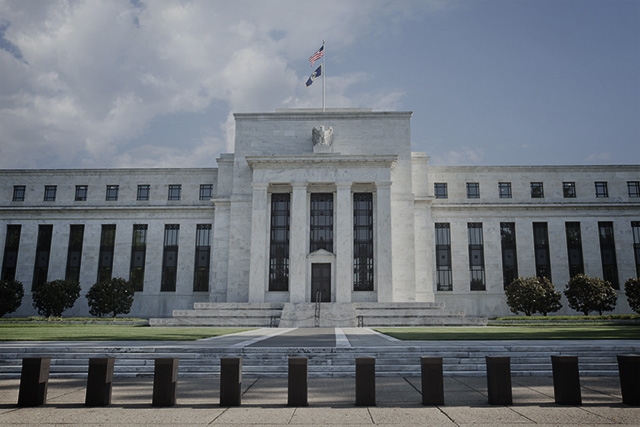
Did you know that Truthout is a nonprofit and independently funded by readers like you? If you value what we do, please support our work with a donation.
Next month the Federal Reserve Board’s Open Market Committee (FOMC) will meet in Washington to decide how many people in the United States should have jobs. If that comment sounds overblown, then you need to do some more reading about the Federal Reserve Board.
The basic story is that the FOMC sets the short-term interest rates for banks. This short-term interest rate in turn affects the interest rate on longer term loans, like car loans, home mortgages, and corporate and government bonds. When the FOMC raises interest rates, as it did back in December, it generally leads to higher interest rates on other forms of debt. This means that people will pay more money on a car loan or mortgage, which in turn discourages them from buying cars or houses.
If consumers buy fewer cars and housing it will reduce demand in the economy and slow growth. Similarly, if corporations borrow less to invest and state and local governments cut back on infrastructure spending, it will also lead to less demand. And with less demand in the economy, fewer people will have jobs.
Just to be clear, the Fed is not all powerful. It is easier to slow growth with higher interest rates than to raise it with lower interest rates, especially when the interest is near zero, as has been the case for the seven years.
Nonetheless, the basic story is true. When the FOMC sits down to meet next month they will be arguing over whether they think the economy is creating jobs at too slow a pace or too fast a pace. If they decide too many people are getting jobs, the Fed will raise interest rates.
The remarkable part of this story is that the Fed’s meetings are taking place at the same time as hotly contested presidential primaries for both parties, yet they are being almost completely ignored. This is perhaps understandable on the Republican side, since much of their economics has little connection to reality.
Many of the party’s leaders, including Speaker of the House Paul Ryan, have been screaming about hyper-inflation for the last five years, even as the inflation rate has remained well below the Fed’s 2.0 percent target. One of the party’s leading presidential candidates, Sen. Ted Cruz, wants the Fed to surrender its control of interest rates and return to the gold standard.
It is less clear why the Fed is not featuring more prominently in the Democratic Party primaries. Both candidates are pledging to promote job creation to help low-and middle-class people. They both have committed themselves to substantial infrastructure programs which directly generate jobs in the short term and improve the economy’s productivity in the longer term.
However the ability of these programs to actually lead to a net increase in jobs will depend on the response of the Fed. If either of them gets to the White House and gets their plan through Congress, the Fed can easily jack up interest rates enough to offset whatever boost the new infrastructure gives to the economy. For this reason, the candidates should be very concerned about the Fed’s current and future plans.
In fact, Senator Sanders has been critical of the Fed. He has long advocated restructuring the system so that the banks do not have such a large voice in setting the country’s monetary policy. As it stands, five of the 12 voting members of the FOMC are appointed through a process dominated by the banks. Twelve of the 19 members on the full committee are selected through this process. Sanders was also critical of the decision of the Fed to raise rates in December, arguing that it would slow growth at a time when the economy desperately needs more jobs.
However, in spite of this background, the Fed has barely been invisible as a campaign issue. This is especially surprising as the concerns of African Americans and Hispanics are playing such an important role in the Democratic race. African-American and Hispanic workers will be the first in line to lose their jobs if Fed rate hikes substantially slow growth. They are also the ones most likely see benefits, not only in jobs, but also higher wages, if the Fed allows the economy to continue to expand.
For these reasons, the Fed’s policy should be front and center in the debate between the Democratic candidates. The public deserves to know how they view Fed policy and what they might do to influence it as president.
Press freedom is under attack
As Trump cracks down on political speech, independent media is increasingly necessary.
Truthout produces reporting you won’t see in the mainstream: journalism from the frontlines of global conflict, interviews with grassroots movement leaders, high-quality legal analysis and more.
Our work is possible thanks to reader support. Help Truthout catalyze change and social justice — make a tax-deductible monthly or one-time donation today.